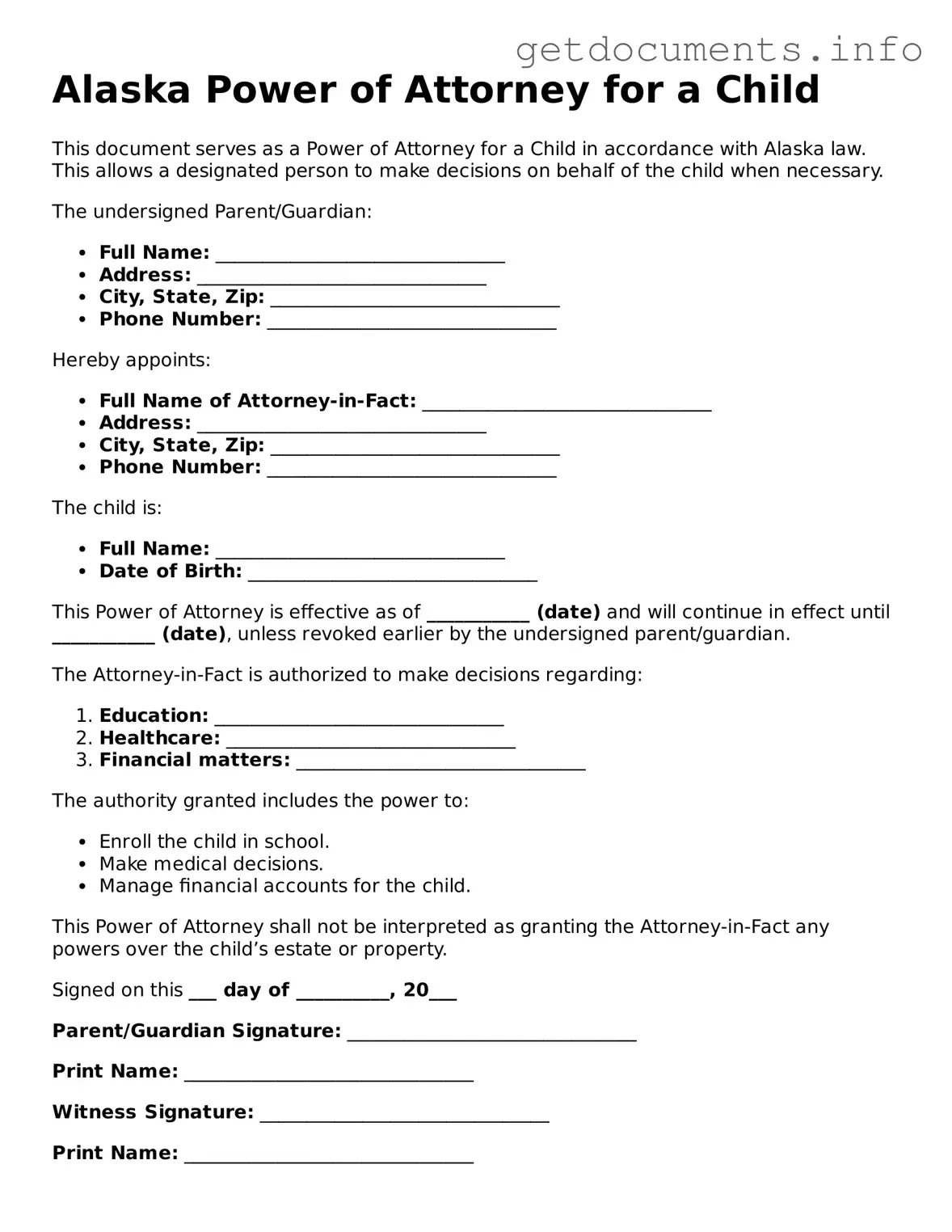Free Power of Attorney for a Child Template for Alaska
The Alaska Power of Attorney for a Child form allows a parent or legal guardian to designate another individual to make decisions on behalf of their child. This legal document is essential for ensuring that a trusted person can manage the child's affairs in the parent's absence. To get started on filling out this important form, click the button below.
Access Power of Attorney for a Child Editor

Free Power of Attorney for a Child Template for Alaska
Access Power of Attorney for a Child Editor
Got places to be? Complete the form fast
Fill out Power of Attorney for a Child online and avoid printing or scanning.
Access Power of Attorney for a Child Editor
or
⇩ PDF File
